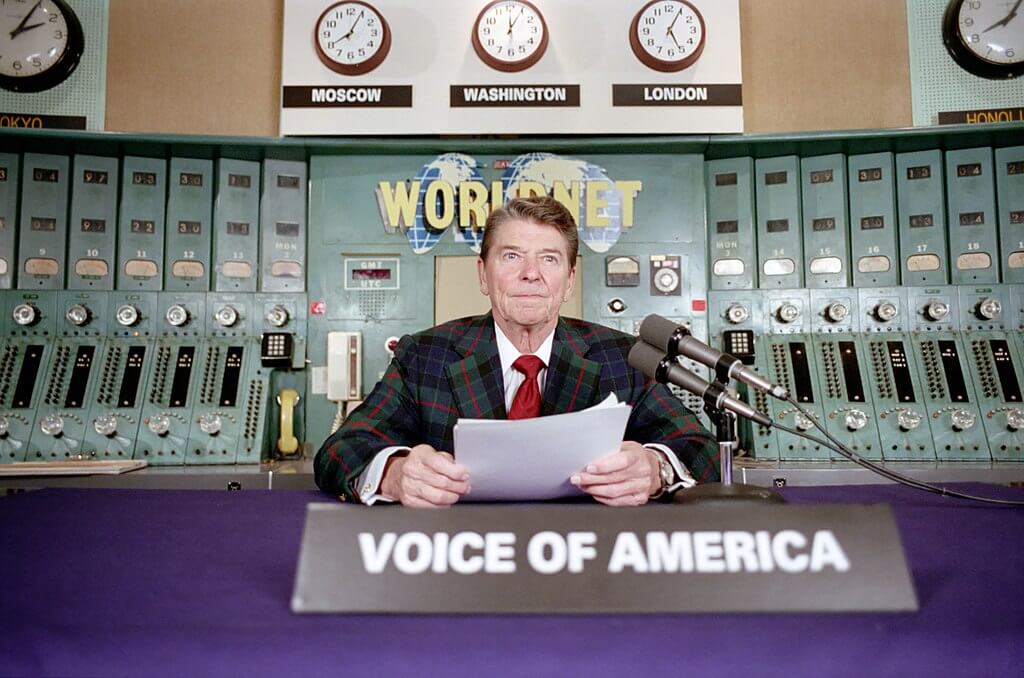It was a quiet voice in the night in Southern Rhodesia, a radio broadcast. But it let in the world: a world beyond the horizons of my family, and even the demanding British public school-inspired academy I attended.
The broadcast was the BBC Transcription Service. I had to keep the radio on low because it was carried after midnight by the local radio network, which itself was based on the BBC model.
There was only one channel and no television in Southern Rhodesia in the 1950s, so the BBC Transcription Service was very important, especially to me in my teens.
To this day, I recall a scientific program on the frontal lobes of the brain and a dramatization of John Galsworthy’s novel “The Man of Property.”
I didn’t need to listen to those broadcasts to get information left out by an oppressive government’s censorship. There was none then; it was long before Ian Smith’s premiership. I didn’t have to be afraid of the police at the door because I was listening to the radio.
Behind the Iron Curtain, or in any other oppressed country, say Salazar’s Portugal, listening to the unbridled BBC and its spiritual sister, the Voice of America, required courage as you risked arrest.
But listen they did. First to the BBC in Nazi Germany and its occupied countries, and to VOA, later during World War II and in the countries under Soviet influence or control, and in Mao’s China.
Now this great voice, the Voice of America (so appropriately named in reality and metaphor) has been silenced after 83 years by the Trump administration for no discernible reason. What Stalin and Mao couldn’t silence — with jamming, long prison sentences and ubiquitous policing — President Trump has done with a pen stroke.
What VOA and its services — including Radio Free Europe/Radio Liberty, Radio Free Asia, Radio Marti and the Middle East Broadcasting Networks — did was to offer high-quality journalism and entertainment uncontaminated by propaganda.
Paradoxically, VOA was free of government messaging because it was financed by the government. An act of law guaranteed that, and its highly professional staff of 900, broadcasting in more than 40 languages, were on guard against propaganda.
Yes, the government paid for it to be free. Consequently, it was practicing a pure broadcasting that might have reached the apex of achievable objectivity.
Commercial broadcasting is not free in that way and is often biased for commercial reasons. Think Fox and MSNBC or the pinnacle from which CNN has fallen.
The BBC, like VOA, is government-funded with a special tax called the “licensing fee.” But because the bulk of its output is domestic, it is constantly berated by politicians, frequently in the House of Commons.
The BBC World Service is financed separately through the UK Foreign Office, but is wholly owned and operated by the BBC, thus keeping the government at arm’s length; another paradox in which pure journalism is taxpayer financed.
I have personal knowledge of both the BBC and VOA. I worked for the BBC television news in London and did occasional radio broadcasts for its overseas service in the early 1960s.
At VOA in Washington, I was sometimes interviewed by Branko Mikasinovich for the Serbian and Russian services. I found the experience as professional and questions as objective as any I have experienced from any news outlet anywhere. (It was also fun.)
For two decades, my weekly news and public affairs television program, “White House Chronicle,” was carried by VOA globally in English — and at one time was translated into Chinese. It was dropped during the first Trump administration, but VOA started distributing it again in the Biden years. Mostly it deals with the nexus of science and society, such as AI’s anticipated impact on jobs.
I have simply given the program to VOA as a public service and no money has ever changed hands.
Apart from the hard news, VOA gave the world a window into democratic America: our struggles and triumphs, our values, our of freedom, our luxury of choice, and those aspects of American life that make us the nation we are — at best aspiring to be Ronald Reagan’s “shining city upon a hill.”
The Trump administration hasn’t only denied 70 percent of the world that lives under authoritarian rule the opportunity to hear the truth, but they have also robbed America of the second of its two great soft power tools; the first was USAID, the helping agency.
We aren’t only telling the world that we don’t care about it, but we are also retreating from it into inconsequence.



